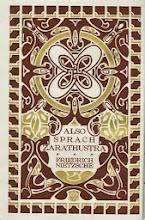Charles Sanders Pierce on the Scientific Method
this is from his stanford entry and it's a great concise statement of what scientists actually do when they do science! Thank you Aristotle ala Alhazen ala Roger Bacon ala Francis Bacon (I wonder if they were related) ala Charles Sanders Pierce. Here you go, the perennial scientific wisdom that was discovered by great minds throughout the centuries, even more evidence of the truth of the empirical part of the perennial philosophy
As so integrated, deduction, induction, and abduction are not simply argument forms any more: they are three phases of the methodology of science, as Peirce conceived this methodology. In fact, in Peirce's most mature philosophy he virtually (perhaps totally and literally) equates the trichotomy with the three phases he discerns in the scientific method. Scientific method begins with abduction or hypothesis: because of some perhaps surprising or puzzling phenomenon, a conjecture or hypothesis is made about what actually is going on. This hypothesis should be such as to explain the surprising phenomenon, such as to render the phenomenon more or less a matter of course if the hypothesis should be true. Scientific method then proceeds to the stage of deduction: by means of necessary inferences, conclusions are drawn from the provisionally-adopted hypothesis about the obtaining of phenomena other than the surprising one that originally gave rise to the hypothesis. Conclusions are reached, that is to say, about other phenomena that must obtain if the hypothesis should actually be true. These other phenomena must be such that experimental tests can be performed whose results tell us whether the further phenomena do obtain or do not obtain. Finally, scientific method proceeds to the stage of induction: experiments are actually carried out in order to test the provisionally-adopted hypothesis by ascertaining whether the deduced results do or do not obtain. At this point scientific method enters one or the other of two “feedback loops.” If the deduced consequences do obtain, then we loop back to the deduction stage, deducing still further consequences of our hypothesis and experimentally testing for them again. But, if the deduced consequences do not obtain, then we loop back to the abduction stage and come up with some new hypothesis that explains both our original surprising phenomenon and any new phenomena we have uncovered in the course of testing our first, and now failed, hypothesis. Then we pass on to the deduction stage, as before. The entire procedure of hypothesis-testing, and not merely that part of it that consists of arguing from sample to population, is called induction in Peirce's later philosophy.


<< Home